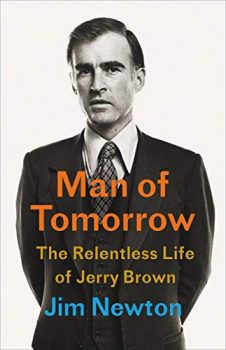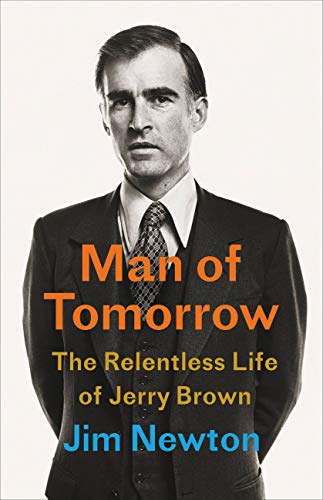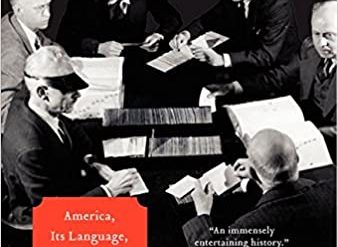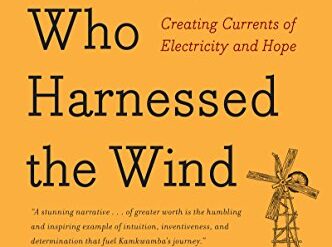
For nearly half a century, Jerry Brown has confounded the people of California with the contradictions rooted so deeply in his personality. We’ve long known that it would be simplistic to pigeonhole him as either liberal or conservative. But the inconsistencies are more profound than that. Throughout his many years in public office, he felt “tugged between life as a politician and life as a monk.” Longtime Los Angeles Times reporter and editor Jim Newton emphasizes that dichotomy in his superb new biography, Man of Tomorrow.
Growing up in a shadow
The son of a beloved two-term governor, Brown languished in his father’s shadow for many years even after gaining statewide office himself. After all, Pat Brown (1905-96) was one of the state’s all-time most popular governors and had left a legacy that was hard to ignore. He had built the California State Water Project and set in motion the state’s Master Plan for Higher Education that launched the University of California on a course to become the world’s most outstanding public university.
Man of Tomorrow: The Relentless Life of Jerry Brown by Jim Newton (2020) 448 pages @@@@@ (5 out of 5)
Rejecting his father’s profession and ill-suited for the gregariousness he thought politics required, Brown set out as an adult to enter the priesthood. However, after three years in a Jesuit seminary, he opted instead for a secular life, gaining a bachelor’s from UC Berkeley and a law degree from Yale. And at the age of thirty-two, with Ronald Reagan in the Governor’s Mansion and Richard Nixon in the White House, he ran for Secretary of State, and won. It would seem he had resolved the tension between the twin attractions of the monastery and public life. But had he?
A rare intellectual in high public office
Rarely does democracy elevate intellectuals to high public office. In fact, no American politicians come readily to mind except Jerry Brown. And Man of Tomorrow delves as deeply into his intellectual evolution as it does to the sources and consequences of the policies he pursued. Throughout the book, Newton explores the chief intellectual influences that have led Brown to be who he is and act how he does:
- Priest and theologian Ignatius of Loyola (1491-1556), founder of the Jesuits
- German economist E. F. Schumacher (1911-77), best known as the author of Small Is Beautiful
- Austrian Roman Catholic priest and philosopher Ivan Illich (1926-2002), whose most influential book was Deschooling Society
- English-American anthropologist Gregory Bateson (1904-80), best remembered for Steps to an Ecology of Mind
- Zen Buddhism
Brown didn’t just read the books—he lived the ideas. And some of these thought leaders became personal friends with whom he spent hours discussing ideas, Schumacher, Illich, and Bateson in particular.
“The earth’s most prominent defender”
The man’s contradictions aside, Jerry Brown has proven to be one of this state’s, and the nation’s, most accomplished governors. In his four terms in office—1975 to 1983 and 2011 to 2019—he brought about campaign finance reform, extended the collective bargaining rights of farm laborers and state employees, diversified the judiciary and state government, supported the rise of Silicon Valley, implemented aggressive efforts to protect the state’s air and water, and restored the state to fiscal health in the face of severe economic (and political) headwinds. Yet a broader view of the man’s evolution yields a more meaningful assessment than merely reciting a litany of his policies.
“He took office as a young maverick interested in solar energy and space exploration,” Newton writes. “By the time he finished, he would be recognized around the world as the most prominent defender of the earth itself.” Given the public’s notoriously short attention span, that assessment may no longer be accurate, but it surely was true during the final years of Brown’s time in office.
In a review in the Washington Post, UC Berkeley history professor Mark Brilliant emphasizes Newton’s recognition of Brown’s prescience. The biographer had pointed to Brown’s “‘far-flung and significant’ policies, practices and positions” that justify the title of his book. But is (or was) Jerry Brown a “Man of Tomorrow?” Certainly, his far-sighted concern about the consequences of global climate change and his affinity for solar energy, space travel, and the technology spawned by Silicon Valley would suggest as much. Yet it remains to be seen from the perspective of future historians how well Jerry Brown’s leadership will be viewed once all of us now alive have passed from the scene. Perhaps no American governor who fails to rise to the presidency can expect to be remembered half a century or more after leaving office. And if that’s the case, perhaps it only brings into high relief Jerry Brown’s abiding search for deeper meaning in the ideas that guided his life.
About the author
For decades, Jim Newton worked at the Los Angeles Times as variously a reporter, editor, columnist, bureau chief, and editorial page editor. He now teaches at UCLA. Newton is also the author of well-received biographies of Dwight Eisenhower and Earl Warren, and he collaborated with former CIA director and defense secretary Leon Panetta on his memoir.
For further reading
Recently I reviewed another excellent biography of a prominent political figure whose career intersected with Jerry Brown’s: Pelosi by Molly Ball (A critical but admiring biography of Nancy Pelosi).
Some years ago I reviewed another, much less revealing biography of Jerry Brown: Trailblazer: A Biography of Jerry Brown by Chuck McFadden (A new biography serves up Jerry Brown, once over lightly).
You might also be interested in:
- Top 10 nonfiction books about politics (plus dozens of runners-up)
- Great biographies I’ve reviewed: my 10 favorites
- Top 20 popular books for understanding American history
And you can always find my most popular reviews, and the most recent ones, plus a guide to this whole site, on the Home Page.



























